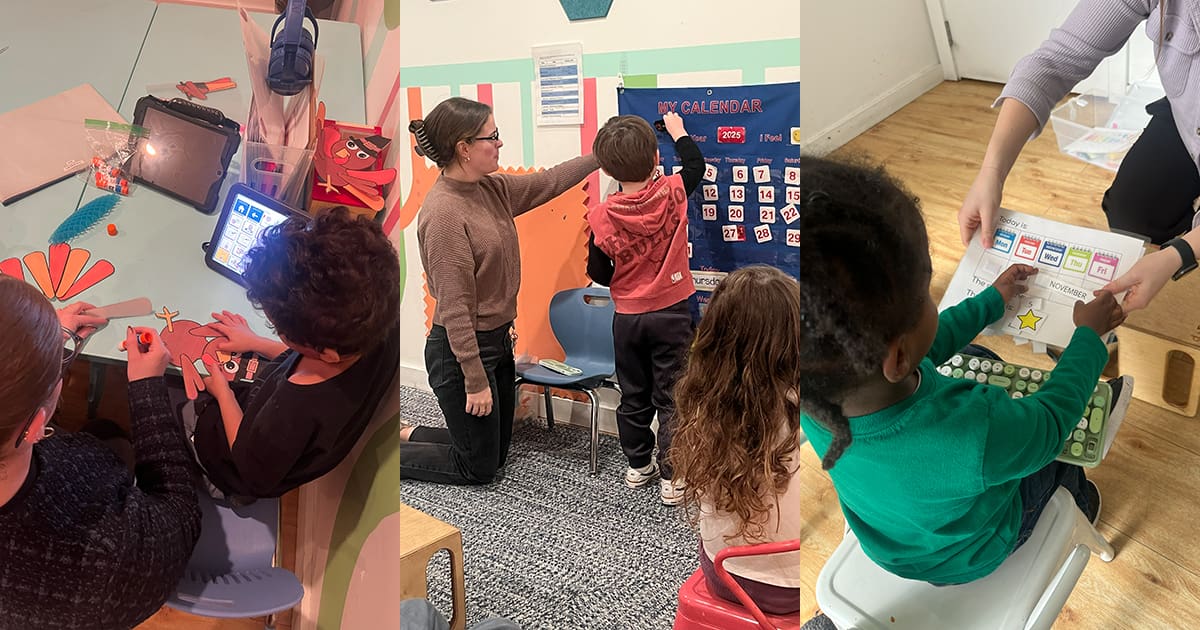Share this Post

For parents, hearing their child struggle with stuttering can be a deeply emotional experience. Many wonder whether their child will outgrow it, how it might affect their confidence, and what steps they should take to support their child’s speech development. While stuttering is common in young children, early intervention and the right therapeutic approach can make a significant difference.
At CST Academy, we understand that every child’s journey with stuttering is unique. That is why we provide individualized, evidence-based treatment recommendations to help children develop stronger communication skills, build confidence, and express themselves freely.
Understanding Stuttering in Children
Stuttering is a speech disorder that affects fluency and the natural flow of speech. It often appears between the ages of two and five, a period when children are rapidly developing language skills. Stuttering may involve:
- Repeating sounds, syllables, or words (e.g., “b-b-b-ball”)
- Prolonging sounds (e.g., “ssssssun”)
- Pausing or blocking before speaking
- Using filler words like “um” or “uh” to delay speech
- Displaying physical tension, such as blinking or facial strain, while trying to speak
For some children, stuttering is temporary and improves as their language skills develop. For others, it can persist and require speech therapy to help them develop techniques for smoother speech.
When to Seek Treatment for Stuttering
Many children go through a phase of normal disfluency as they learn to put words together. However, certain signs may indicate that a child could benefit from professional support. Parents should consider seeking treatment if:
- Stuttering persists for more than six months without improvement
- The child shows frustration or anxiety about speaking
- Stuttering becomes more frequent or severe over time
- The child begins avoiding certain words or speaking situations
- Physical signs of tension appear, such as facial grimacing or struggling to speak
Early intervention can provide children with the strategies they need to navigate stuttering with confidence. The sooner therapy begins, the better the chances of reducing the impact of stuttering on communication.
CST Academy’s Recommendations for Stuttering Treatment
At CST Academy, we take a compassionate, individualized approach to stuttering treatment. Our goal is to help children improve their fluency while maintaining their confidence and love for communication. We recommend a combination of speech therapy techniques, home strategies, and supportive communication practices.
1. Work with a Speech-Language Pathologist (SLP)
Speech therapy is the most effective way to help children manage stuttering. A licensed speech-language pathologist (SLP) specializes in assessing speech patterns and creating tailored strategies to improve fluency.
In therapy sessions, children may:
- Learn techniques to control the speed and rhythm of their speech
- Practice breathing exercises to reduce tension while speaking
- Develop strategies for navigating moments of disfluency without frustration
- Engage in interactive and play-based speech activities to build confidence
An SLP works closely with families to ensure that therapy techniques can be reinforced at home, making progress more consistent.
2. Create a Supportive and Low-Pressure Speaking Environment
The way parents and caregivers respond to stuttering can significantly impact a child’s comfort level with speaking. Creating a relaxed, patient, and supportive environment helps children feel confident in their communication.
To foster a positive speaking environment:
- Maintain eye contact and show interest in what your child is saying rather than how they are saying it
- Speak at a slower pace to model relaxed speech patterns
- Avoid finishing their sentences or correcting their speech mid-sentence
- Allow natural pauses and give them time to express themselves without pressure
A calm and encouraging approach reassures children that their words are valued, helping them feel more confident when speaking.
3. Use Fluency-Building Techniques at Home
Parents can incorporate fluency-enhancing techniques into daily conversations to help children develop smoother speech. Some strategies include:
- Encouraging slower speech by modeling a relaxed speaking style
- Practicing turn-taking conversations to reduce pressure in social situations
- Engaging in singing and rhyming activities, which naturally encourage smoother speech patterns
- Using structured storytelling or reading aloud together to reinforce fluency skills
These home-based techniques help children feel more in control of their speech and give them valuable practice outside of therapy sessions.
4. Address Emotional Aspects of Stuttering
Stuttering can sometimes lead to frustration, embarrassment, or reluctance to speak. Helping children develop a healthy mindset about their speech is just as important as working on fluency.
Parents can support their child’s emotional well-being by:
- Acknowledging stuttering in a positive and matter-of-fact way, reassuring them that everyone speaks differently
- Encouraging open conversations about feelings related to stuttering
- Celebrating effort and progress rather than focusing on perfect fluency
- Helping children recognize that stuttering does not define their ability to communicate
Building self-confidence allows children to feel comfortable expressing themselves, even if moments of stuttering occur.
5. Consider Group Therapy or Social Communication Activities
For children who experience anxiety about speaking, participating in group therapy or structured social activities can provide a safe and supportive environment to practice communication. Engaging in conversations with peers who also face similar challenges can help children feel less isolated and more confident in their speech.
Group therapy sessions often include:
- Guided social interactions that encourage communication in a relaxed setting
- Games and activities designed to build fluency in real-life conversations
- Peer encouragement, which reinforces that stuttering is a shared experience rather than something to be feared
These experiences can help children develop communication skills in a natural and supportive way, reducing anxiety about speaking in social situations.
Long-Term Success in Stuttering Treatment
Stuttering treatment is a journey, and progress happens at different rates for each child. Some may see quick improvements, while others may need ongoing support. The key to success is patience, consistency, and a positive approach.
With the right combination of professional therapy, home support, and confidence-building strategies, children can develop the skills they need to communicate effectively and without fear.
How CST Academy Can Help
At CST Academy, we believe that every child deserves the opportunity to express themselves with confidence. Our experienced speech-language pathologists provide individualized therapy plans tailored to each child’s needs. We work closely with families to ensure that parents have the tools and knowledge to support their child’s progress at home.
If you are seeking stuttering treatment for your child, we are here to help. Contact CST Academy today to learn more about our speech therapy services and how we can support your child’s communication journey.
Discover Our Pediatric Therapy & Autism Care
ABA Therapy
Support for children with autism.
Autism Evaluation
Expert assessments to identify child needs.
Pediatric Therapy Services
Speech, Occupational, Feeding, and Physical Therapy.
Therapeutic Preschool
A classroom environment designed for early learners with unique needs.

Find the Best Care for Your Child




